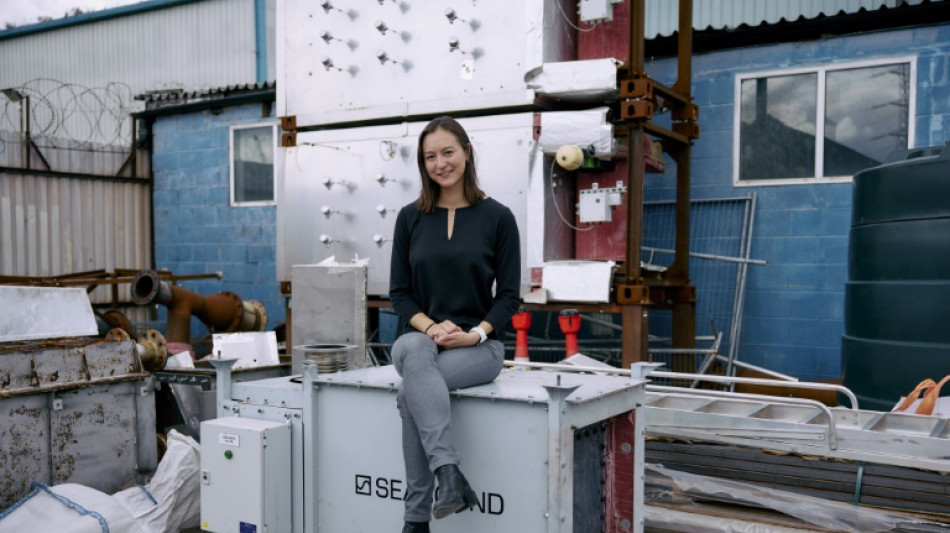
-
 UN sanctions on Iran set to return as nuclear diplomacy fades
UN sanctions on Iran set to return as nuclear diplomacy fades
-
King Charles III to visit Vatican in October

-
 Marc Marquez third on grid at Japan MotoGP as Bagnaia takes pole
Marc Marquez third on grid at Japan MotoGP as Bagnaia takes pole
-
Philippines death toll rises to 11 as storm Bualoi bears down on Vietnam
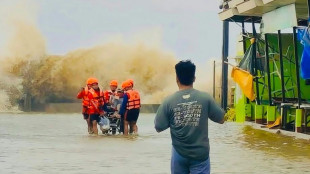
-
 Donald excited Europe handled raucous crowd well at Ryder Cup
Donald excited Europe handled raucous crowd well at Ryder Cup
-
Goals, guns and narcos: Hitmen plague Ecuador's beautiful game

-
 Argentine victims of live-streamed murder laid to rest on eve of protest
Argentine victims of live-streamed murder laid to rest on eve of protest
-
No USA Ryder Cup panic as fightback enters Bradley's plan
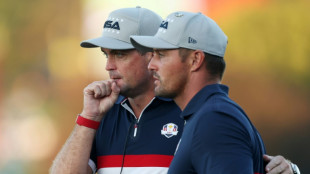
-
 USA turns to Scheffler, DeChambeau in Saturday foursomes
USA turns to Scheffler, DeChambeau in Saturday foursomes
-
Trump can't spark US comeback in visit to Ryder Cup

-
 Trump urges Microsoft to fire ex-Biden administration official
Trump urges Microsoft to fire ex-Biden administration official
-
Europe takes three-point Ryder Cup lead as US gets no Trump boost

-
 Three talking points ahead of the Women's Rugby World Cup final
Three talking points ahead of the Women's Rugby World Cup final
-
Murillo sends Marseille top in Ligue 1 with late win in Strasbourg

-
 Kimmel boycott ends as US TV companies put him back on air
Kimmel boycott ends as US TV companies put him back on air
-
Kane scores twice to reach 100 Bayern goals in record time

-
 'Almost impossible': Brazilian skater Sandro Dias makes history on mega ramp
'Almost impossible': Brazilian skater Sandro Dias makes history on mega ramp
-
Trump targets more opponents after 'dirty cop' Comey

-
 Sixers' Embiid eyes consistency after injury-plagued NBA season
Sixers' Embiid eyes consistency after injury-plagued NBA season
-
More questions than answers surround Trump's TikTok deal

-
 Iran sanctions look set to return as last-ditch UN push fails
Iran sanctions look set to return as last-ditch UN push fails
-
Sitting ducks: Venezuelan fishermen wary of US warships
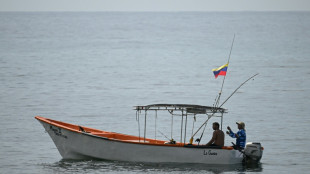
-
 Nissanka ton in vain as India edge Sri Lanka in Super Over
Nissanka ton in vain as India edge Sri Lanka in Super Over
-
An Aussie tycoon bets billions on cleaning up iron ore giant
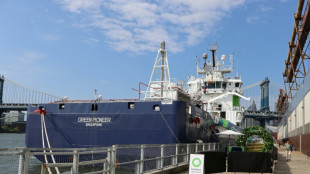
-
 Civil defence says 50 killed in Gaza as Netanyahu vows to 'finish job' against Hamas
Civil defence says 50 killed in Gaza as Netanyahu vows to 'finish job' against Hamas
-
Canada's Corrigan leans on Olympic experience in quest for Women's Rugby World Cup gold

-
 Kolisi warns 'resilient' Boks are braced for Puma mauling
Kolisi warns 'resilient' Boks are braced for Puma mauling
-
Fearing US invasion, Venezuela to hold emergency drills

-
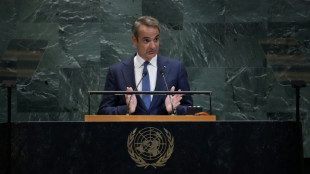 Greek PM warns Israel risks losing friends
Greek PM warns Israel risks losing friends
-
Pakistani PM appeals for India talks, hails Trump role

-
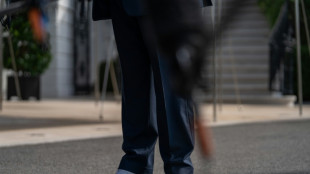 Trump aims to make America great again amid Ryder Cup woes
Trump aims to make America great again amid Ryder Cup woes
-
Trump arrives at Ryder Cup with US seeking comeback

-
 Europe grabs 3-1 lead as US seeks Trump boost at Ryder Cup
Europe grabs 3-1 lead as US seeks Trump boost at Ryder Cup
-
Lufthansa planning thousands of job cuts: sources

-
 China at UN warns of return to 'Cold War mentality'
China at UN warns of return to 'Cold War mentality'
-
England great Alphonsi expects Canada to shine in Women's Rugby World Cup final

-
 Tottenham reject interest in reported record £4.5bn sale
Tottenham reject interest in reported record £4.5bn sale
-
Man Utd boss Amorim admits uncertainty ahead of Brentford clash
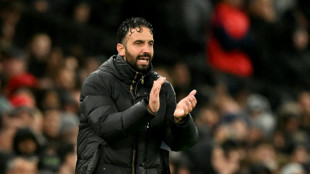
-
 Zverev wins Beijing opener as Gauff launches title defence
Zverev wins Beijing opener as Gauff launches title defence
-
Barca duo Raphinha, Joan Garcia injured, out for PSG clash

-
 Trump hopes more opponents to be charged after 'dirty cop' Comey
Trump hopes more opponents to be charged after 'dirty cop' Comey
-
US Fed's preferred inflation gauge rises, with more cost pressures expected
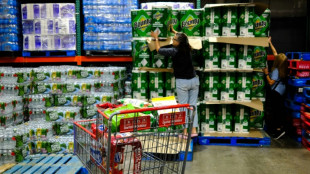
-
 Facebook, Instagram to offer paid ad-free UK subscriptions
Facebook, Instagram to offer paid ad-free UK subscriptions
-
Former UK PM Blair could lead transitional authority in Gaza: reports
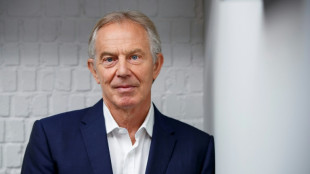
-
 Netanyahu says Palestinian state would be 'national suicide' for Israel
Netanyahu says Palestinian state would be 'national suicide' for Israel
-
The nations and firms threatened by Trump's pharma tariffs

-
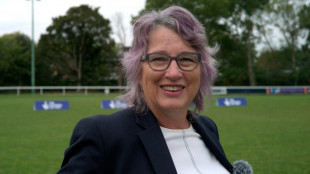 Trailblazing rugby chief Griffin proud of 'incredible' strides for women's game
Trailblazing rugby chief Griffin proud of 'incredible' strides for women's game
-
Brother of Oasis stars denies rape, other charges

-
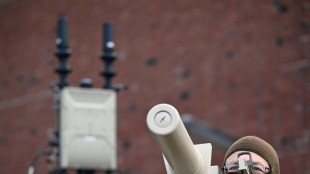 EU steps up 'drone wall' plans after Russian incursions
EU steps up 'drone wall' plans after Russian incursions
-
Kenyan jeans factory to fire workers as US deal expires
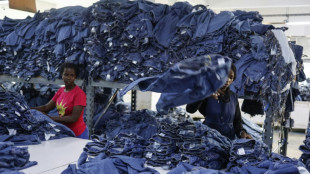

UK startup looks to cut shipping's carbon emissions
In a small London workshop, a prototype mimics the process of capturing carbon emissions from a cargo ship's engine.
For two celebrated young designers, it is the beginning of a journey aimed at helping the maritime sector decarbonise.
"We're simulating what happens on a ship," Alisha Fredriksson told AFP of the technology she developed alongside her friend Roujia Wen.
The women, both aged in their early thirties, met at university and have since founded the company Seabound.
Its work on "ocean-ready carbon capture" has seen the friends shortlisted for this year's Young Inventor Prize, which rewards technology contributing to sustainable development goals put forward by the United Nations.
Winning the award on Wednesday "would be an extra boost to the team... a validation that the world cares about the shipping industry and its decarbonisation journey", said Fredriksson.
Shipping accounts for three percent of global emissions, while the International Maritime Organization (IMO) recently voted in favour of a pricing system to help tackle excess carbon.
At Seabound's miniature courtyard factory, Fredriksson showed off the prototype, which is fitted with a generator.
"We're burning fuel, and that creates CO2," she explained, as exhaust gas was routed through a complex system of pipes into various containers.
The carbon pollution was captured by lime pebbles, while the other elements were released into the atmosphere.
The white-coloured lime acts "like a sponge", said chemical engineer Glexer Corrales, wearing a navy laboratory coat as he tested the quality of the granular-like substance that "is readily available" and "cheap".
Once absorbed, the carbon was transformed into limestone through a chemical process.
Seabound claims that minimal customisation is necessary for its system to work across many types of vessel.
- Shipping transformation -
Technology for carbon capture, utilisation and storage (CCUS) has so far been used primarily on land by heavy industry, for example in the production of cement, glass and steel.
Potential safety risks of using CCUS at sea have yet to be set out by the IMO.
And for the process to be truly beneficial, the amount of carbon captured "must be greater than the carbon produced" through the energy use incurred in installing the system, including on land, IMO official Camille Bourgeon told AFP.
This objective was largely achieved during an initial test in 2023, when Seabound's system captured 78 percent of CO2 emitted aboard a ship run by Lomar Labs.
From 2028, all ships will be required to use a less carbon-intensive fuel, the IMO recently ruled, while a penalty of $380 will be imposed for each tonne of CO2 emitted beyond allowances permitted by the UN shipping body.
The IMO move has created "a big tailwind for our system", said Fredriksson, whose company aims to charge $150 for each tonne of captured CO2, before selling it on to companies requiring it for the production of certain types of fuel.
Seabound plans also to recycle the limestone.
L.Wyss--VB
